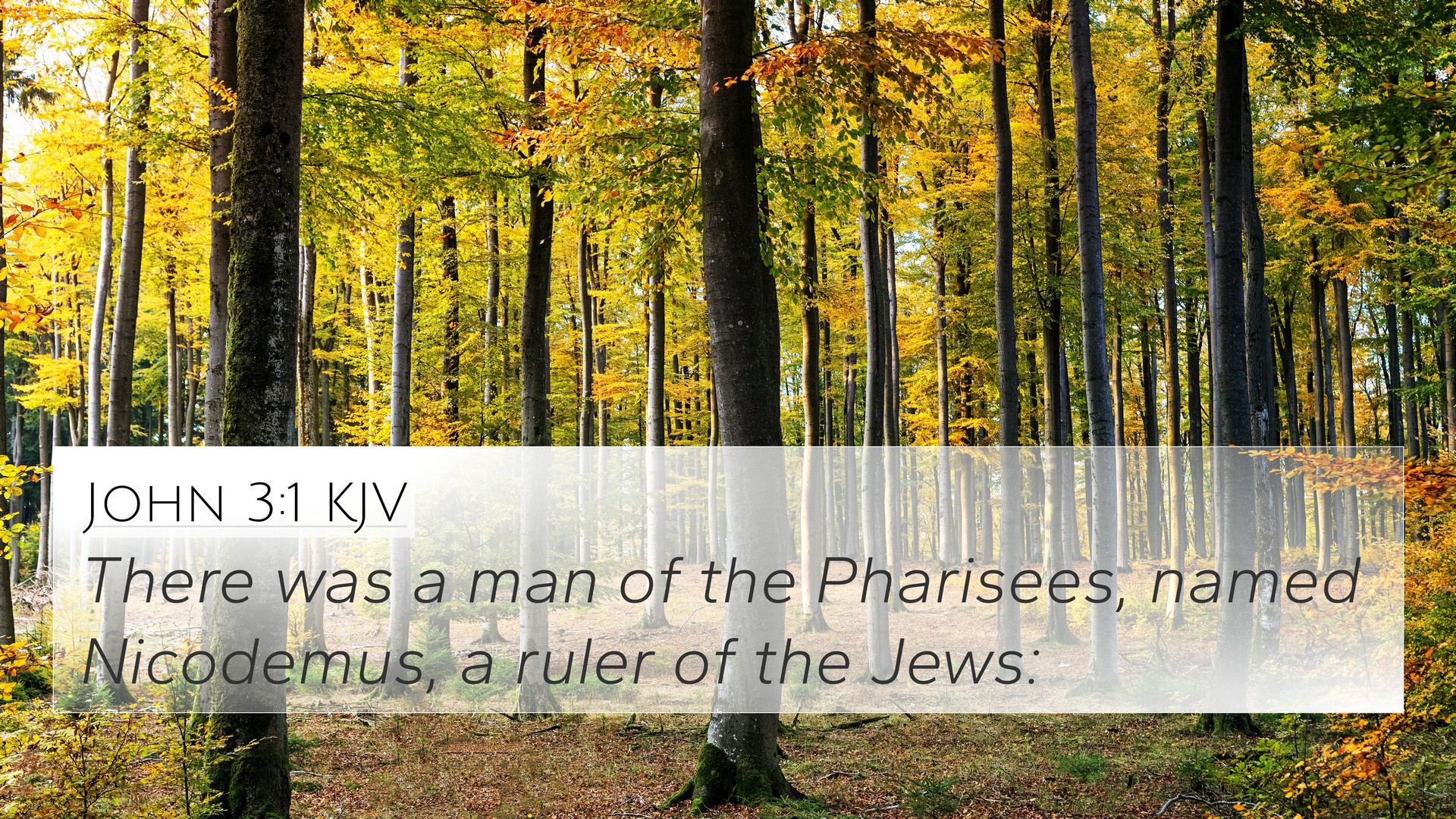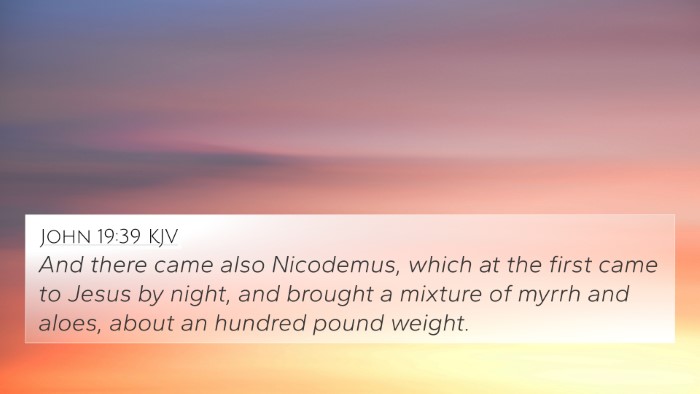Understanding John 3:1
John 3:1 states:
"There was a man of the Pharisees, named Nicodemus, a ruler of the Jews."
This verse introduces us to a significant character in the Gospel of John, Nicodemus, who was a Pharisee and a member of the Jewish ruling council. Understanding who Nicodemus was is vital to grasping the larger conversations and theological implications that follow in the chapter.
Character Analysis of Nicodemus
According to Matthew Henry's Commentary, Nicodemus is characterized by his rank, wealth, and respectability. He represents the Jewish leadership who were experts in the law yet often blinded by their own traditions. This sets the stage for the radical teachings Jesus will present to him, contrasting His message of rebirth with the established Jewish religion.
Albert Barnes notes that as a Pharisee, Nicodemus is devoted to the law and the traditions that surround it. His status as a “ruler of the Jews” indicates his authority, yet despite his position, he shows a deep curiosity and desire to understand Jesus’ message, highlighting a fundamental truth about spiritual inquiry: it can come from unexpected places.
Adam Clarke emphasizes that Nicodemus' visit at night symbolizes his initial spiritual darkness. The nighttime setting reflects a reality for many who seek truth but are afraid of the implications or the societal perceptions surrounding their journey. Nicodemus' approach to Jesus suggests a sense of urgency in understanding the divine truth he felt was missing in his life.
Theological Insights
This verse subtly introduces the theme of transformation that Jesus will elaborate on through His dialogue with Nicodemus. It connects to broader theological themes, particularly the necessity of spiritual rebirth, which begins to unfold in the following verses. The significance of Nicodemus extends beyond him as an individual; he exemplifies the tension present within the Jewish faith—between rigid adherence to the law and the new life offered through faith in Christ.
Cross-References
John 3:1 can be linked to several other biblical texts that illuminate its meaning:
- John 3:3: Jesus explains the necessity of being "born again" to see the Kingdom of God, pointing directly to the transformative aspect of his teachings.
- John 7:50-51: Nicodemus later defends Jesus among other Pharisees, demonstrating his evolving faith and courage.
- Matthew 5:20: Jesus states that unless your righteousness exceeds that of the Pharisees, you cannot enter the Kingdom of Heaven, directly challenging the authority that Nicodemus represents.
- Romans 3:20: It connects with the idea that no one can be justified by the law, highlighting the limitations of the Pharisaical system in understanding true righteousness.
- John 1:12-13: These verses anchor the theme of spiritual rebirth and divine acceptance further, reinforcing Jesus’ message to Nicodemus.
- Acts 15:5: The ongoing conflict between early Christians and Pharisees reflects the larger narrative of Nicodemus' initial context.
- Galatians 3:24-25: The role of the law as a schoolmaster leads us toward faith, underscoring the transformative nature of accepting Christ's teachings.
- 1 Peter 1:23: The concept of being "born again" ties directly back to the themes introduced in John 3:1 and the necessity of a new spiritual birth.
- Hebrews 10:1: The law being a shadow of good things to come, aligns with the transition Nicodemus represents.
- Matthew 23:27-28: Jesus criticizes the Pharisees, providing insight into the spiritual conditions that Nicodemus must grapple with.
Connections and Implications
In John 3:1, the multifaceted identity of Nicodemus introduces rich thematic connections throughout scripture. Consider how this text serves as a bridge between the Jewish legalism embodied by Pharisees and the grace offered through Christ. It reflects the ongoing quest for truth amidst darkness, a theme prevalent in many biblical narratives.
This narrative highlights the importance of approaching scripture with an understanding of cross-references and thematic connections that enhance biblical study. Utilizing resources like a Bible concordance or a Bible cross-reference guide can help believers identify these connections and deepen their understanding of God's word.
As you reflect on John 3:1, seek to understand how it challenges your own assumptions about faith, authority, and spiritual awakening. Look for parallels between different scriptures and explore how they inform one another, thereby engaging in a rich, inter-Biblical dialogue that enhances your study and understanding of Scripture.






